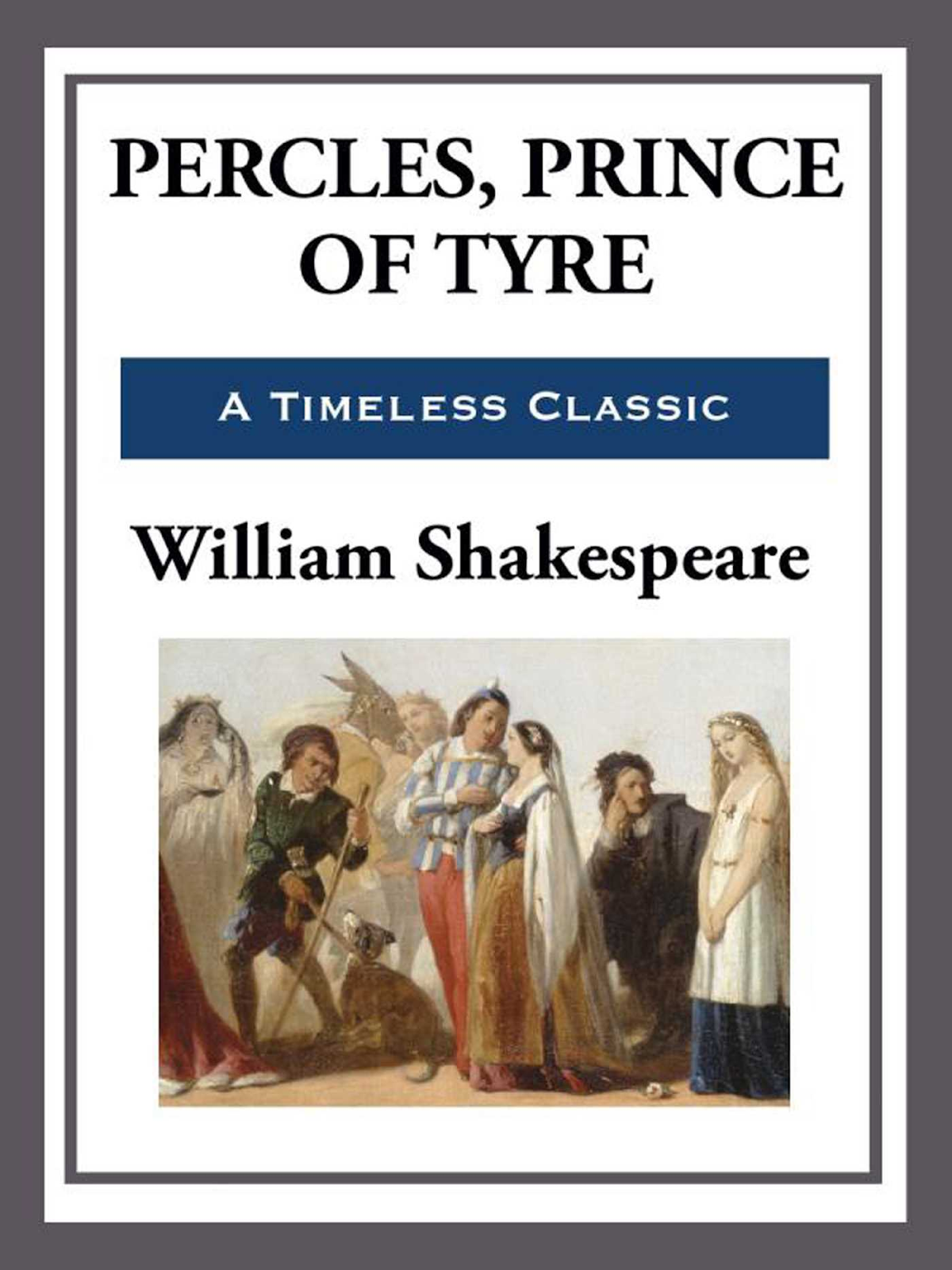PERICLES:
O Helicanus, strike me, honour'd sir;
Give me a gash, put me to present pain;
Lest this great sea of joys rushing upon me
O'erbear the shores of my mortality,
And drown me with their sweetness. O, come hither,
Thou that beget'st him that did thee beget;
Thou that wast born at sea, buried at Tarsus,
And found at sea again! O Helicanus,
Down on thy knees, thank the holy gods as loud
As thunder threatens us: this is Marina.
Pericles, Prince of Tyre is in that grab-bag of lesser Shakespeare plays, rarely performed, rarely read, except among the real Bard-heads. It's easy to see why: it's largely unsatisfying, an unfocused series of episodic melodramas that never quite seems to add up to a real play. It was one of the firt of Shakespeare's plays to be considered a collaboration (in this case, with John Fletcher), and it shows. And yet, it's easy to imagine its strangeness working on the stage, where costumes and sets might play up its oddities, and the exotic ports that the Prince of Tyre calls upon might come alive.
The story goes something like this: Pericles attempts to win the hand of a princess by solving a riddle; when he realizes that the princess is in an incestuous relationship with her father, he is forced to flee the king's vengeance. In a port of refuge, he joins a tournament for the hand of another princess, which he wins, securing the hand of the beautiful Thaisa. But when Thaisa dies in childbirth at sea, he has her tearfully buried overboard and his daughter Marina put in safekeeping with (yes, another) king Cleon. Cleon and his jealous wife try to kill Marina, but she is kidnapped by pirates and sold into a brothel, where her virtue converts her customers to chastity--much to the chagrin of her bawd. Cleon tells Pericles that Marina has died, and he gets really upset, until he finds Marina again, where she has been rescued by the local governor. Then, in a dream, Diana tells him to go to her temple, where he finds Thaisa, having been resurrected by a sorcerer and made a priestess. It's really quite a happy ending.
Pericles is among those plays that seem unclassifiable--are they a history? a tragedy? a comedy?--but to me, it clearly forms a trio with Timon of Athens and Titus Andronicus, a trio of plays that use the characters and settings of ancient literature to create a kind of elevated reality or fantasy world. When Pericles joins the contest for the hand of Thaisa, he is reminiscent of Odysseus, playing games and contests in foreign lands for favor of foreign kings. There are other similarities: the shape of Pericles is dictated by the Wheel of Fortune, the rapid rise and fall of luck and disaster, and this structure, to me, seems to share a lot with the forms of ancient literature. And of course, the happy ending--perhaps the happiest ending in all of Shakespeare's play--is reminiscent of Odysseus' return to Penelope.
One of the things I liked best about Pericles was actually the part that Shakespeare likely didn't write: the creepy opening where Pericles solves the riddle of king Antiochus's incest. Antiochus stresses to Pericles that all who have tried to solve the riddle have failed, and the punishment for failure is death. Pericles--invoking another Greek story, Oedipus and the Sphinx--is smitten and courageous enough to try anyway, but as soon as he reads it--like, instantly--he realizes that Antiochus has hidden his dirty secret inside the riddle, more or less in plain sight:
I am no viper, yet I feed
On mother's flesh which did me breed.
I sought a husband, in which labour
I found that kindness in a father:
He's father, son, and husband mild;
I mother, wife, and yet his child.
How they may be, and yet in two,
As you will live, resolve it you.
I thought this was one of the more interesting scenes in the play, the way Antiochus both reveals and does not reveal his deed. There's something here about the fragile justifications we set up around ourselves, not exactly denying what we are unable to deny, but couching it in such a way that we soothe our own conscience and hide it from others. Of course, it's all very stupid; he should have just made a riddle about something else. It also, especially in the hands of a brave director, brings unsettling layers to the recognition scene, in which Pericles and his daughter Marina have their reunion. After all, Marina has been plucked from the brothel from the governor, who came first as a customer, and is now perhaps not entirely reformed by her virtue; he offers her to the distraught Pericles because he thinks their experiences will draw them together. It's not un-erotic, is all I'm saying.
So, Pericles is not my favorite. And yet, I think if someone were to stage it, I'd go see it, and with more excitement than even some of the plays which I like better.


No comments:
Post a Comment